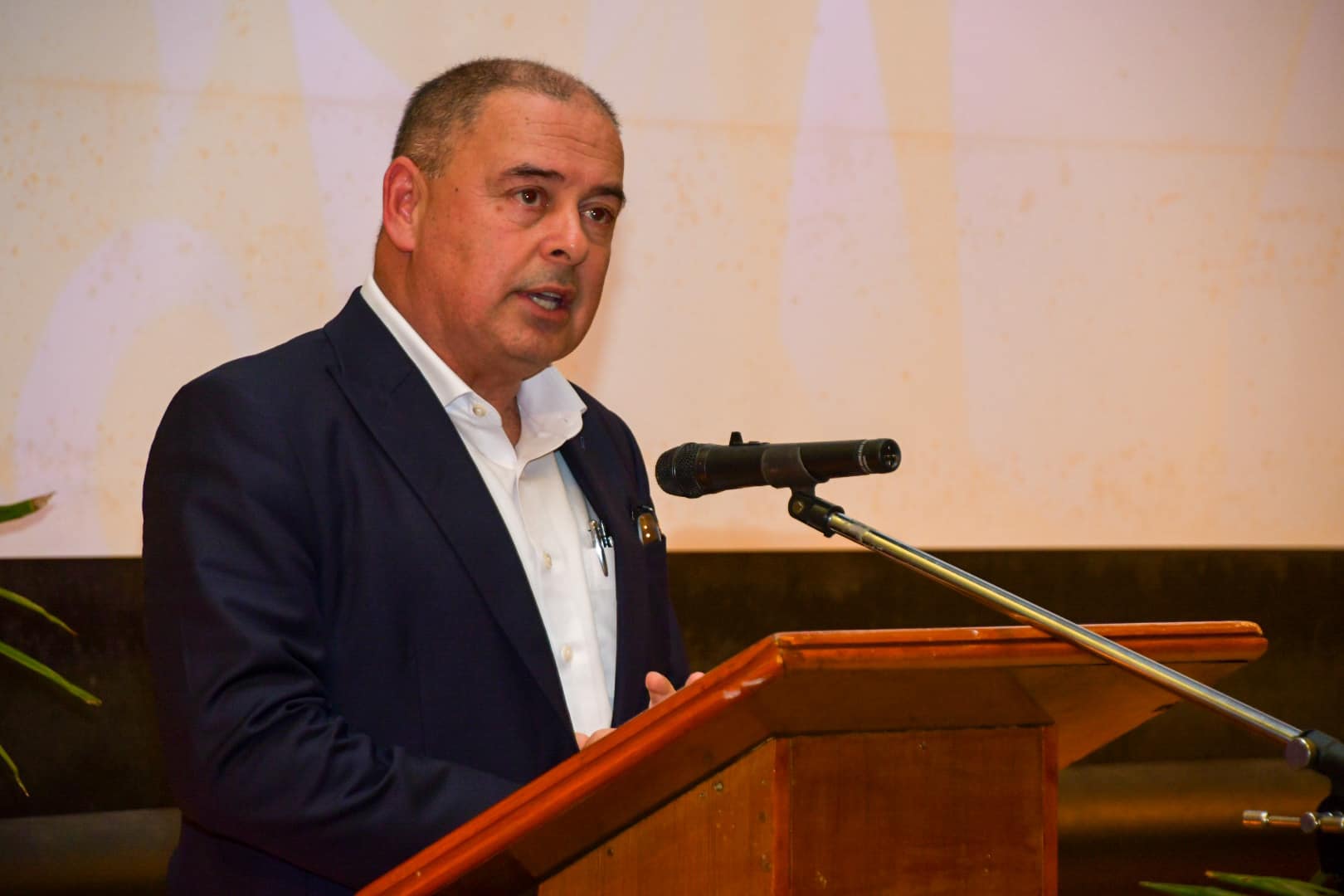Cook Islands aims to become knowledge hub for seabed minerals
Thursday 10 August 2023 | Written by Losirene Lacanivalu | Published in Environment, National

Prime Minister Mark Brown.Photo: FIJI GOVERNMENT /23080909
Prime Minister Mark Brown this week spoke about the progress of Cook Islands seabed minerals exploration, data collection and being a knowledge-based economy to combat the impacts of climate change.
Speaking on economic resilience at the University of the South Pacific (USP) in Suva, Fiji, Brown explained that Cook Islands has moved from a subsistence, to agriculture, and service base (tourism) industry and is now focused on becoming a knowledge-based economy.
“Our knowledge base industry is something we have been involved in now for a number of years and have been understanding for a number of decades,” Brown said.
Read more: Cook Islands’ seabed mining ambitions unaffected by ISA failure to adopt rules
Referring to the Cook Islands’ deep sea minerals industry, Brown said it has the potential to help diversify the economy and build economic resilience.
“We have known about our minerals for decades, since the 60s and 70s when expeditions went through our waters and some samples were taken.
“The world
is now pushing to try and achieve carbon reduction targets to help achieve the
1.5 degrees because right now all of us, all of our Pacific countries including
the rest of the world are feeling the impact of climate change,
inundation/flooding, more severe cyclones.”
Brown said the Paris Agreement has not lived up to its expectations, the Green
Climate Fund has yet to achieve the commitments of pledging from donor
countries, and countries that are vulnerable to the impacts of climate change
must do something to try and build resilience to protect themselves.
“As a country, we know that the transition from fossil fuel to renewable energy means less reliance on oils and increasing reliance on critical metal.”
The Cook Islands seabed minerals have the potential to provide critical metals for the supply chain, ensuring that countries that need to shift from high to low carbon economies can be a part of that, he said.
Last year the Government issued exploration licences to three companies to explore approximately 12 per cent of Cook Islands’ exclusive economic zone.
“What that has done is, it has enabled our country to have $200 million worth of exploration investment over the next five years,” Brown said.
“In just a short time until today, we have built an extensive knowledge-based database of information on our deep sea, an area of knowledge that not many people know about but an area we are starting to learn about.
“With the knowledge and understanding that we are gaining with the science-based approach that we are taking, we want to be able to determine whether we can be part of the supply chain for critical metals that the world so greatly needs right now. In order to make that decision, we need the data and information.”
Brown further revealed that they have been in talks with USP on how they could collaborate and partner to utilise the data that is being gathered to try and establish a centre of excellence on the understanding of deep ocean science- a new and emerging area.
“And whether that understanding can lead to the ability to harvest and extract our nodules which sit on the ocean floor, in a way that does not damage our ocean, in a way that is far less environmentally damaging then the current sourcing of critical metal that is required for the green transition that we are currently seeing on terrestrial sources for these minerals.”












































